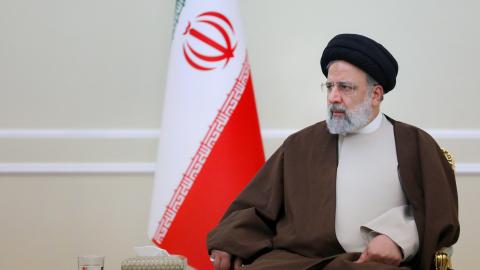In 2021, the Treasury Department conducted a broad review of the economic and financial sanctions that it administers and enforces. The review’s main recommendations focus on judicious application of sanctions toward specific strategic goals, combined with familiar multilateralist principles. The Biden administration’s imposition of unprecedented sanctions on Russia has proven to be effective and consistent with the recommendations of the Treasury review.
In the case of Iran, on the other hand, the administration is only selectively applying the review’s recommendations, and with dismal results. Despite Iran’s increasingly grave violations of its international nuclear obligations and other provocations, the administration has relaxed sanctions pressure on Iran, especially by ignoring oil sales to China.
A comparative examination of US sanctions policy toward Russia and Iran suggests that the administration would do well to implement its own conclusions, while recognizing their limitations. Doing so demands a holistic approach and a much tougher stance toward Tehran.
First, the Treasury review correctly emphasizes the setting of realistic goals within a broader strategy. Sanctions are unlikely by themselves to persuade Vladimir Putin to end Russia’s war in Ukraine. They did not, and will not by themselves, lead to regime change in Iran—nor to a better nuclear agreement. Sanctions remain a crucial but complementary tool to other measures. The administration clearly understands that they are not a substitute for arming and financing the Ukrainian army. However, the White House has been far less willing to counter Iran with hard power, even when provoked, and to pose a consistent, credible military threat to Iran’s nuclear facilities.
Second, the review’s emphasis on the desirability of multilateralism blurs the line between large and small states. Multilateralism is essential to maintaining economic pressure against large economies such as Russia’s or China’s. The international sanctions on Moscow have imposed a heavy burden on the Russian economy, harmed the Kremlin’s ability to continue financing the war in a way that affects its military achievements, and limited the technology available to the Russian economy, and thus also to the Russian military, possibly for decades to come. Additionally, as Deputy Treasury Secretary Wally Adeyemo has pointed out, concerns about the impact of sanctions on the global economic system have proven overblown.
Nevertheless, as national security adviser Jake Sullivan has acknowledged, the US has demonstrated that its own secondary sanctions can achieve much the same economic impact unilaterally against a smaller country such as Iran, and with even less collateral damage to the global economy. The achievements of the Biden administration’s multilateral sanctions on Russia and those of the largely unilateral sanctions imposed on Iran under the Trump administration’s “maximum pressure campaign” are largely the same: The target economies were badly hurt, making it more difficult to finance malign activity and to acquire high-tech weapons.
Finally, the sanctions on both Russia and Iran prove the necessity of deterring third-party actors from helping the target country circumvent sanctions. In today’s interconnected world, it is insufficient to look only at the sanctioned country’s economy and not to observe its main supply chains. Ukrainian President Volodymyr Zelensky hinted correctly during his speech before Congress about the need to address Iran’s provision of drones to Russia. The US (and Europe) cannot sanction Russia while negotiating with its main weapons supplier—Iran—about sanctions relief.
America’s competition with Russia and China stretches across the globe. The Biden administration should consider its own recommendations and adopt a comprehensive, strategic approach that adjusts its Middle East policy to reflect its China and Russia policy more closely. Instead, its current approach toward Iran both undermines its position toward Russia and China and appears to reflect an ahistorical belief that gestures and goodwill, rather than pressure, will lead the regime to make nuclear concessions. Even the Obama administration grudgingly used congressionally imposed sanctions as leverage to bring Iran to the negotiating table and ultimately to the 2015 nuclear deal, the Joint Comprehensive Plan of Action, or JCPOA.
The place to begin is clear: renewed enforcement of US sanctions against Iran and the activation of the JCPOA’s snapback mechanism, which would reimpose international sanctions and a ban on the transfer of arms to and from Iran. Doing so would help the United States achieve its goals—not just with Iran, but in Ukraine and around the world.
















